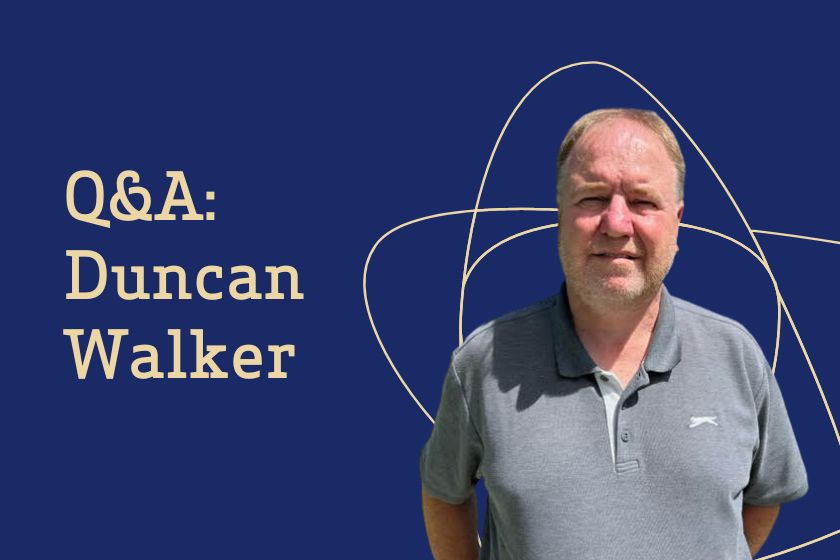How to protect clients amid increasing HMRC enquiry activity
With enquiry activity increasing as HMRC pursues a £42 billion tax gap, and the department’s enquiry tactics...
READ MORE
IFA member Duncan Walker doesn’t regret his time in banking, but his next professional move was the best career decision he’s ever made. Here’s why.

When Duncan Walker studied accounting in high school, he was captivated straight away.
“Taking accounting as a subject really sparked my interest in the profession,” he says. “Studying accounting in school has stood me in good stead throughout my career.”
Understanding the basics provided Walker with a strong grounding in finance.
“I say to anybody going into accounting that they need to understand the basics of bookkeeping and year-end accounts. It doesn’t matter what sophisticated accounts you look at, prepare or analyse, it all comes down to the basics. If you understand the bookkeeping of accounts, everything else will fall into line.”
Walker left school at 17 and began a 20-year career at the Royal Bank of Scotland where he gained experience in auditing, underwriting and in understanding the ins and outs of various businesses.
“I travelled all over Scotland to audit different types of businesses – everything from fishing to farming to the butcher, baker and candlestick maker. That was a great education and experience to see different businesses in different sectors,” says Walker.
His biggest achievement during that period was being named the UK’s Young Banker of the Year in 1993 by the Chartered Institute of Bankers in Scotland.
“That really helped to enhance my profile, which was the main reason I entered. In every industry, there are a lot of good people who work hard and do a good job, but they often don’t get recognised,” says Walker.
“My advice to young people starting their career is two-fold: Get all the qualifications or you’ll be held back if you don't, and differentiate yourself from the crowd. You have to do something that will heighten your profile and make you stand out.”
Financial Accountant sat down with Walker to hear about the accounting career he built after banking, and where he thinks the future of accounting is heading.
Leaving a multinational large corporation to start my own business. I don’t regret my time in banking because it gave me great training and experience, and that enabled me to start my own practice. I’ve really enjoyed being able to make decisions about my business and take my practice in the direction I want to go in.
When I left banking I said to my wife that I would give it six months and, if it didn’t work out, go back to banking. Fortunately, I’ve never looked back. I ran a successful practice for 25 years and sold my practice in September last year. I now work three days a week for the new practice.
I have recognised, as probably most accountants in practice have, that the compliance side of the business is going to lessen over the coming years. Technology is able to manage the process of doing tax returns without any manual intervention, and I think the same will happen for managing accounts. The technology for these tasks will only get better in time.
As an accountant I’ve needed to add value in some other way, and the only way forward is to be a trusted adviser. We won't be able to compete with the big accountancy software companies that can automate the whole process from producing accounts to doing tax returns.
If you want to survive as an accounting practice and attract and retain clients, you need to do something different that will add value. I’ve always tried to provide good advice and help clients solve issues to reach their financial goals.
Around eight years ago I took on a new client who was just out of the army and had established himself as a commercial window cleaner. I could see he had drive and determination and was going places.
He built up his window cleaning business, then went into kitchen extract cleaning, and then into duct cleaning, and he developed a particular way of sealing ducts within buildings.
In the next few weeks, he’s going to sell his business for £4.5 million. In an eight year period, this client has gone from cleaning windows to selling a multi-million pound business.
I helped him identify where he was and where he wanted to be. We approached goal-setting in incremental stages, looking at where he wanted to be in 12-18 months, setting objectives and measuring progress along the way.
I didn’t necessarily help him with everything directly, but I pointed him in the right direction. We’ve shared ideas, talked through problems and I’ve been by his side throughout the journey.
Oftentimes business owners think they need to do everything themselves. But I’ve always stuck to what I’m good at and drawn on the expertise of others to help my client with other parts of their businesses, such as marketing or social media.
If you do that you’ll find your clients, most of the time, will repay that loyalty and trusted advice, and stay with your practice.
Duncan recently sold his practice, and is sharing his experience in a 60-minute webinar on 19 July. Hear how Duncan approached succession planning, what he learnt and more. Find out more.